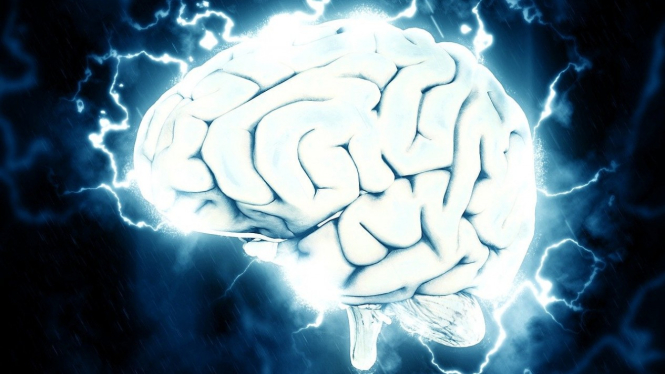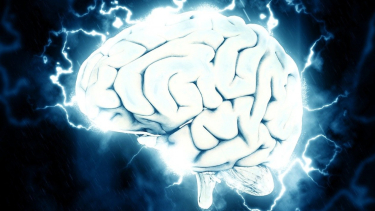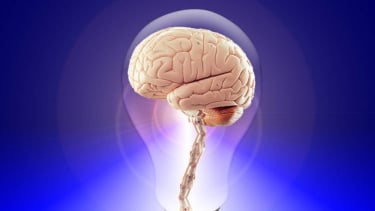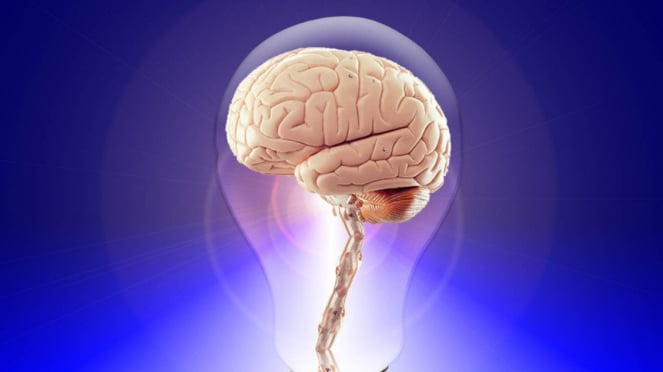How Long Can the Brain Survive Without Oxygen?
- Pixabay
Jakarta – The human brain is an immensely complex and fragile organ that depends on a constant supply of oxygenated blood. Without oxygen, the brain's cells, including the signal-sending neurons that enable us to think and feel, begin to die.
But exactly how long can the brain go without oxygen?
The answer to this question is not completely clear-cut, Dr. Danny Gonzalez, a vascular neurologist and assistant professor at Barrow Neurological Institute in Phoenix, Arizona said, as reported from Live Science site.
The human brain requires more energy than any other organ in the body. Despite accounting for only 2% of the average adult's body weight, it uses about 20% of the oxygenated, fuel-filled blood pumped out by the heart, according to a 2021 review published in the journal Intensive Care Medicine.
Ilustrasi otak manusia
- Pixabay
Our brain needs this huge oxygen supply to maintain its delicate balance of electrolytes, minerals that carry an electric charge and are key for conducting electrical impulses in the nervous system.
An imbalance of these electrolytes disrupts neurons' ability to send messages, because the cells rely on sodium and potassium flowing in and out of their membranes.
This flow is controlled by pumps in a neuron's membrane that malfunction without adequate oxygen.
The pumps' dysfunction leads to a rapid accumulation of sodium and water, causing neurons to swell; but that said, the exact mechanisms behind this swelling aren't incompletely understood, according to a 2021 review published in the journal Neurocritical Care.
The exact time it takes for the brain to incur irreversible damage or completely die from oxygen deprivation depends on several factors, including the extent and duration of the oxygen loss.
That is because an interruption to the brain's blood supply may be partial, as in the case of a stroke or certain head injuries, or it can be complete, as in cardiac arrest, in which heart function abruptly stops.
Stroke will not cause the brain cells to die immediately, but, the longer the lack of oxygen persists, the more severe the harm to the brain, according to the medical resource StatPearls.
In as little as five minutes, low oxygen can cause coma, seizures and neuron death, according to the National Institute of Neurological Disorders and Stroke (NINDS).
Fortunately, people can still recover substantial brain function after a stroke if they are treated fast enough.
Complete lack of oxygen in the brain will cause the brain cells to die within "several minutes," Gonzalez said. In cardiac arrest, spontaneous electrical activity in the surface of the brain disappears within 10 to 30 seconds of the cessation of blood flow, according to a 2016 review of human and animal studies.
Permanent brain damage can occur within just four minutes if a person's blood flow stops, according to the National Library of Medicine's MedlinePlus.
"Any prolonged anoxic brain injury [caused by a complete lack of oxygen] that results in a large amount of cell death increases the risk of brain death diagnosis during hospitalization," Gonzalez said.
Brain death, also known as "death by neurologic criteria," is the complete, irreversible loss of brain function.
Although brain damage from low oxygen generally occurs in a matter of minutes, the exact rate at which damage sets in can vary person to person.
"It is certainly dependent on the individual and what risk factors one may have, such as blood pressure, cholesterol, and smoking," Gonzalez remarked.
Poor cardiovascular health can lead to a buildup of fatty plaques that harden and narrow the blood vessels, which in turn limits blood flow to tissues and organs, including the brain.
That said, poor cardiovascular health may sometimes offer an unlikely advantage in the case that the brain is deprived of oxygen.
"A person with a long standing history of risk factors can develop arteries or compensatory flow patterns to aid them when brain tissue begins to lose oxygen," Gonzalez stated.
"In contrast, a younger, healthy, individual may be unable to tolerate the lack of oxygen to the same extent," he concluded.



































